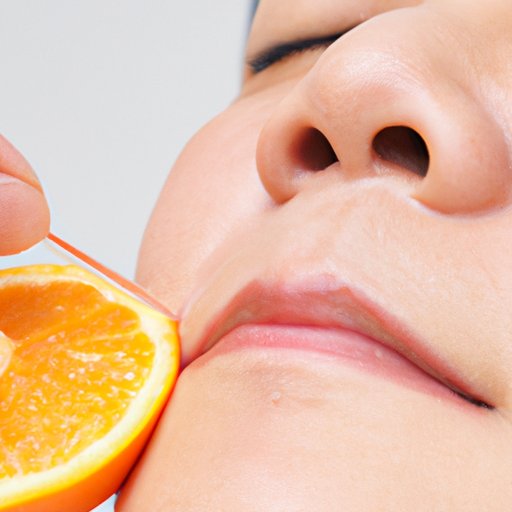
I. Introduction
Pimples are an annoying and sometimes painful skin problem that impacts millions of people globally. Not only do they affect one’s appearance, but they also lower self-esteem and confidence. Fortunately, there are many ways to get rid of pimples and prevent them from coming back. In this article, we’ll discuss natural remedies, skincare, healthy eating, medication, changing habits, and seeking professional help.
II. Natural Remedies
Natural remedies are an effective and affordable way to get rid of pimples and prevent them from returning. Essential oils such as tea tree, lavender, and peppermint can fight acne-causing bacteria and reduce inflammation. Aloe vera has antibacterial and anti-inflammatory properties that help soothe and heal the skin. Honey has antiseptic properties and is an effective moisturizer. To use these natural remedies, dilute them according to the instructions and apply them to the affected areas. Leave them on for 10-15 minutes before rinsing off with warm water.
III. Hygiene and Skincare
Proper hygiene and skincare habits are essential in preventing pimples. It’s essential to cleanse your face twice daily with a gentle cleanser and avoid using too hot or too cold water. Hydrating the skin with a lightweight, non-greasy moisturizer helps keep the skin soft and smooth without clogging the pores. Use skincare products labeled “non-comedogenic” that won’t trigger pimples. Another essential factor in skincare is the use of non-comedogenic makeup. This type of makeup doesn’t clog pores and cause pimples, making it a perfect option for those with acne-prone skin.
IV. Healthy Eating
People experiencing pimples can improve their skin health by adopting a healthy diet. Foods rich in antioxidants such as leafy greens, citrus fruits, avocados, and berries can help fight inflammation and acne-causing bacteria. Also, foods high in omega-3 fatty acids found in fish, nuts, and seeds can fight inflammation and help to retain moisture in the skin. Avoid consuming processed and sugar-rich foods as they can cause inflammation and raise blood sugar levels, leading to pimples formation.
V. Medications
When natural remedies or lifestyle changes don’t work, over-the-counter (OTC) medication may be necessary to treat pimples. Acne fighting ingredients such as benzoyl peroxide, salicylic acid, and alpha hydroxy acids can help to prevent pimples and exfoliate the skin. These products can cause dryness and irritation, so start with a lower concentration and increase as needed. If pimples are severe or do not respond to OTC treatments, prescription medications like antibiotics may be required.
VI. Changing Habits
Some habits can cause or worsen pimples on the skin. These include touching the face, over-washing, and popping pimples. Touching your face can spread bacteria and dirt, resulting in pimples. Over-washing the face strips away essential oils that protect the skin, leading to the skin’s dryness and irritation. Popping pimples can push bacteria deeper into the skin and cause scarring. To prevent the formation of pimples, avoid these habits and seek safe alternatives like cleaning the skin with a washcloth.
VII. Consult with Skin Experts
In some cases, stubborn pimples and acne require expert care from a dermatologist. A dermatologist can assess the skin, identify the cause of pimples, and offer appropriate treatment options such as retinoid creams, chemical exfoliators, and laser treatments. They can also prescribe medication for severe pimples cases. During the appointment, the doctor will examine the skin and ask questions about one’s medical history and lifestyle to develop an effective treatment plan.
VIII. Conclusion
Pimples can be a frustrating aspect of life, but there are many ways to deal with them effectively. Natural remedies, skincare, healthy eating, medication, changing habits, and consulting with skincare professionals are the best ways to prevent and get rid of pimples. Dealing with pimples is about persistence, so don’t give up hope if progress is slow. With consistency and commitment to a good skincare regimen, good results are sure to follow.




